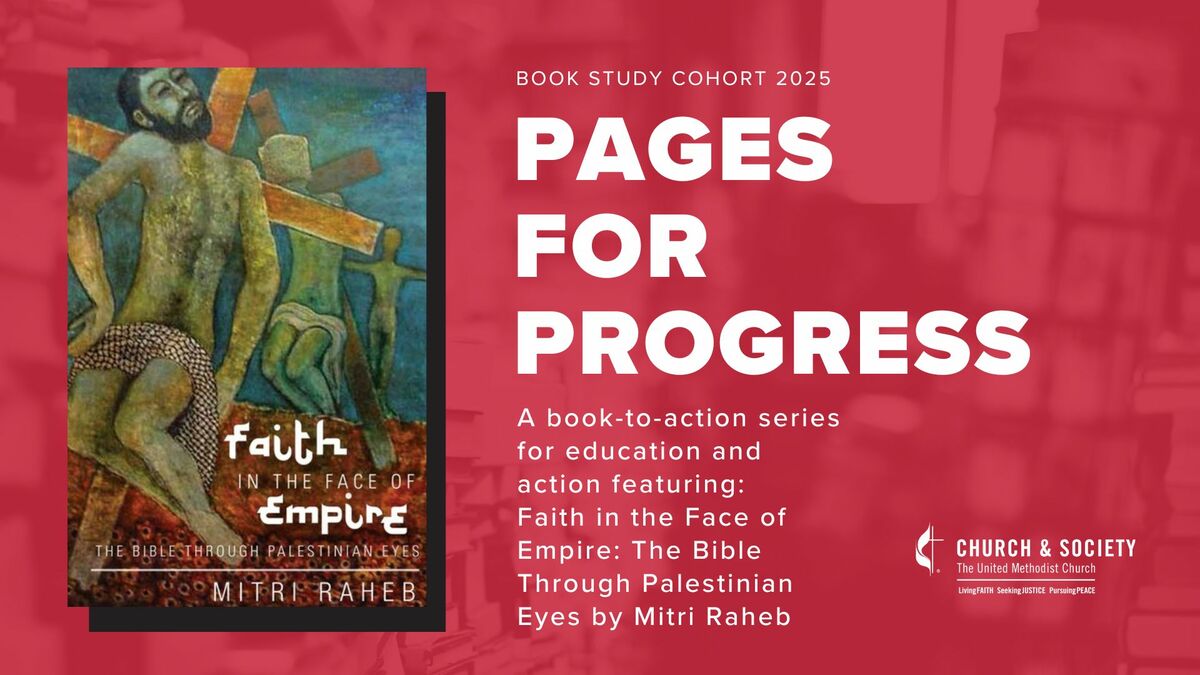Pages for Progress—2025 Lenten Study
Join our third Pages for Progress book study

Sorry, the event is currently at capacity and registration is now closed. If you are interested in joining the wait list, please email ahong@umcjustice.org
The General Board of Church and Society invites you to join our third Pages for Progress book study!
Book: “Faith in the Face of Empire: The Bible Through Palestinian Eyes”
Author: Mitri Raheb
Virtual Meeting Dates: March 7, 14, and 21, 2025
Time: 2-3:30 PM (ET)
Venue: Zoom
Moderated by: Aimee Hong, Assistant General Secretary of Programs and Colleen Moore, Director of Peace with Justice
Join us this Lenten Season as we read and discuss “Faith in the Face of Empire” exploring the intersection between faith, politics, and identity, particularly within the context of Palestinian Christians as they resisted and continue to resist political and cultural domination through a lens of faith and solidarity.
Description of the book:
Through Palestinian eyes, a challenging view of how the reality of empire shapes the context of the biblical story and the ongoing experience of Middle East conflict. Jesus was a Middle Easterner.
If he were to travel through Western countries today he would be ‘randomly’ pulled aside and scrutinized. For Mitri Raheb, a Palestinian Christian living under Israeli occupation, the Middle Eastern context of the biblical story is crucial to its understanding and its relevance to his people today.
A Palestinian reading of the Bible begins with an awareness of the role of empire–a constant feature of Palestine for thousands of years, from the Babylonians and Egyptians, to the Romans, Ottomans, British, and the state of Israel. Each empire imposed its own system of control undergirded by an imperial theology. For “the people of the land,” those who endure from one empire to the next, the question, “Where is God?” carries practical and theological urgency.
For Raheb, faith in God is the hope that there is something greater than empire. Jesus embodied that hope, and so Raheb spells out Jesus’ political program in relation to the Roman Empire of his time, its relevance for his community, and the biblical values relevant for the Middle East, past and present.